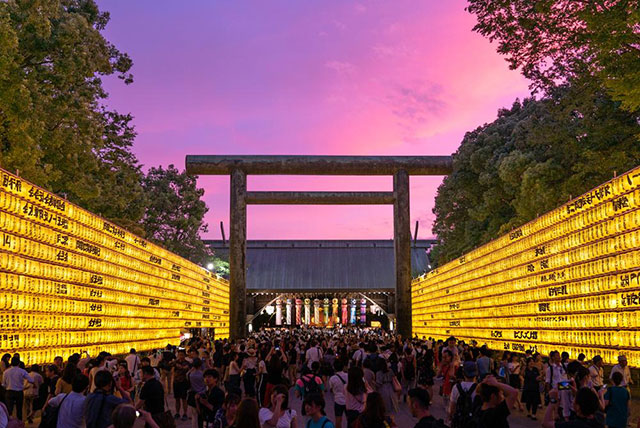
If you're planning a trip to Japan, chances are you'll have a whole swag of questions. Between language barriers, information overload and conflicting stories friends have told you, the country can seem like a little bit of an enigma. To help you sort fact from fiction, here's a rundown of some of the most commonly asked Japan-related questions
-
01
Do you need to tip?
![Do you need to tip?]()
Do you need to tip?
A common question among American visitors is whether tipping culture is as a standard practice like it is back home. As a general rule, the answer is a straightforward no. Although an excellent level of service and hospitality is generally a given in Japan, tipping is not customary, and in some cases, may even cause confusion. If you want to show your gratitude, a polite thank you will suffice.
-
02
Should I buy a JR pass?
![Should I buy a JR pass?]()
Should I buy a JR pass?
A JR Pass is a special ticket offered by Japan Rail (JR) to foreign guests planning to visit the country for sightseeing and extensive traveling. The pass comes in 7, 14, and 21-day installments. As most people know, the rail system in Japan is world-class, and the bullet train (shinkansen) is one of the quickest ways to get around. However, it’s not necessarily cheap, and buying multiple tickets for consecutive days of travel can add up. That said, the JR pass isn’t a small purchase either. As a general rule, if you’re planning to make one trip between cities, it’s probably not necessary, but if you’re planning to make one round trip between Tokyo and Kyoto and Osaka on the shinkansen and want to travel within the cities, the pass will already save you money. To accurately plan out the most budget effective purchase, add your intended destinations into the Navitime Travel Trip Planner (eg. Tokyo Station to Kyoto Station), and the route planner will show you a fare estimate.
Article: How to Use the Japan Rail Pass
-
03
Is it worth booking a stay in a capsule hotel?
![Is it worth booking a stay in a capsule hotel?]()
Is it worth booking a stay in a capsule hotel?
This question depends, for a longer term stay (three days or more) it’s not going to be the most convenient choice as most capsule hotels require guests to check out each day. If you want to try it for the novelty, but don’t want to compromise comfort, consider one of the more high-end options, and look for something like The Millenials in Shibuya. The Millenials is a new, art-centric capsule hotel complete with co-working space, cafe, and projector screens in some of the rooms.
Article: The Millenials Hotel Tokyo
-
04
When is the best time of year to visit?
![When is the best time of year to visit?]()
When is the best time of year to visit?
Your experience of Japan will vary depending on the time of year you visit, so seasons are well worth considering when booking a trip. Between December-February is winter in Japan, and in most areas can get bitterly cold; however, it’s a great time to visit for snow sports. If you come between March-May, that’s the best time to catch the cherry blossom season, but it is very popular with international tourists and can be a little more expensive.
The humidity during the summer months is typically a surprise for first-time visitors in Japan, and typhoon season during this period can affect holiday plans, but it’s an ideal time to explore the nation’s still somewhat internationally underrated tropical islands like Okinawa. Autumn is great for sightseeing and those planning day trips, and an excellent alternative to cherry blossom madness too. If you want to avoid crowds, try not to book too much during the national holiday seasons Golden Week (late April to early May) and Obon (in mid-August). -
05
Is Japan good for families?
![Is Japan good for families?]()
Is Japan good for families?
Japan is incredibly safe, full of excellent day trip opportunities, and fun novel activities that are suitable for guests of all ages, making it an excellent place for active families. The country is home to many amusement parks like Disneyland, but also has plenty of local alternatives like Nikko Edomura too. Just be wary about booking accommodation, as options will typically be more compact than what western families are used to.
-
06
Are there rules about visiting a temple or shrine?
![Are there rules about visiting a temple or shrine?]()
Are there rules about visiting a temple or shrine?
What to wear when planning to visit one of the country’s sacred sites is a regularly asked question, but there’s no hard and fast rule. Many of the country’s popular spiritual sites host countless visitors daily, and local staff are equipped to help guests of all backgrounds. As a general rule, however, it’s worth being conscientious and keeping an eye out for particular rules that may be signposted. At some sites, eating on temple grounds, being overly loud, chatting on the phone, and taking photos inside specific temples is frowned upon. As long as you show the same level of respect as you would at any other religious site, you won’t have any trouble.
-
07
Where can I see the fish auction?
![Where can I see the fish auction?]()
Where can I see the fish auction?
In October 2018 the famous Tsukiji fish market moved Toyosu, it’s located close to Shijo-mae Station on the Yurikamome Line, about two kilometers from its previous location. If you want to witness the world famous tuna auction, be sure to get there around 5 am to secure a spot in the viewing area or observation deck on the lower floor.
Article: Toyosu Fish Market and Tuna Auction
-
08
Can I visit the onsen with tattoos?
![Can I visit the onsen with tattoos?]()
Can I visit the onsen with tattoos?
An excellent way to unwind and a uniquely local past time; taking a long, hard-earned soak in one of Japan’s soothing onsens (hot springs) is worth trying at least once. Almost all onsens require bathers to be naked, and many are still reluctant to accept people with tattoos. The attitude is a hangover from old-world Japan when tattoos were a signifier of mafia associations. Today, given the influx of international guests some baths have turned a blind eye to tattoo brandishing, but more traditional baths may still deny entry if you’re covered in ink. To play it safe, it’s best to do your homework and search out ‘tattoo friendly onsens’ or if they’re small, cover your tattoos with a bandage or a plaster.
The Tokyo Station Hotel
1-9-1 Marunouchi, Chiyoda-ku Tokyo

-









 Go here
Go here










